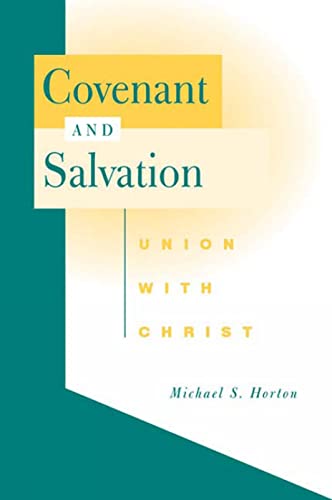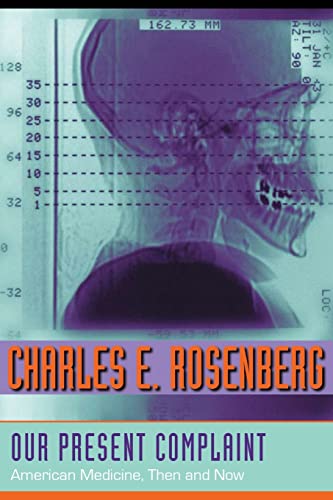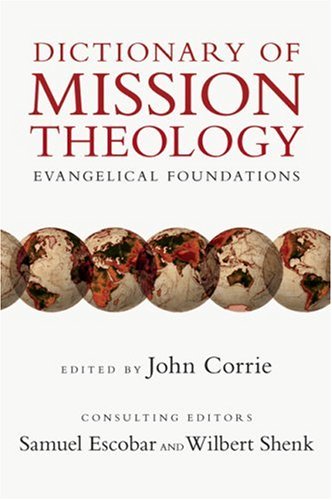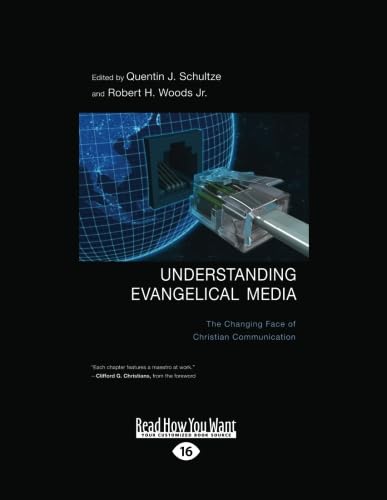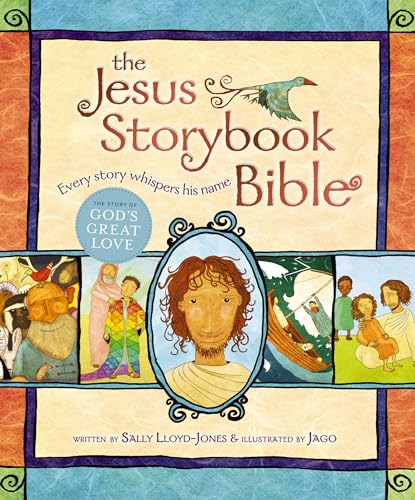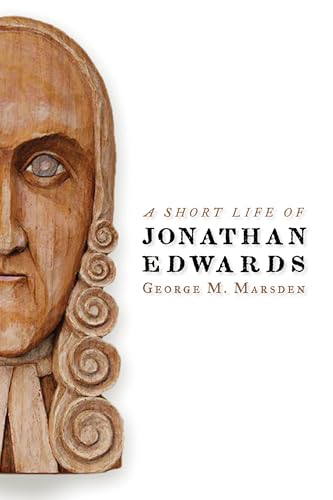Covenant and Salvation: Union with Christ
Written by Michael S. Horton Reviewed By Stephen N. WilliamsPut rather sophisticatedly, Michael Horton’s volume is an exercise in the fusion of horizons: the horizon of Reformation and post-Reformation seventeenth century federal theology, ostensibly rooted in Calvin’s thought, and the horizon of third-millennial theological thought. Put rather more straightforwardly, the author is convinced that the tradition of ‘covenant theology’ has adequate resources to meet contemporary theological needs. And, put more strongly, it is argued that covenant theology is the theology of the Bible and so, beyond adequacy, it is necessary for today.
Covenant and Salvation: Union with Christ is the third volume in a series which argues this case. It is in two parts. The first deals with ‘Covenant and Justification’ and enters into a debate which has been lively for some time, commonly conducted under the heading of the ‘new perspective on Paul’. Horton engages in a running battle with its most prominent representatives, E.P. Sanders, James Dunn and, especially, N.T. Wright. He acknowledges that they differ amongst themselves on some points, but argues that they all fail to displace traditional Protestant Reformation readings of Paul. As we should expect, law, gospel, works and imputation are all discussed here. The second and somewhat longer part deals with ‘Covenant and Participation’. Horton argues for the importance of participation and for a strong, positive approach to union with Christ. Eastern Orthodox thēosis is given a sympathetic hearing. But the foundations must be right or the theology will be wrong. Covenant theology gives us those foundations. Horton’s interlocutors include the Radical Orthodox group, especially John Milbank, who are certainly criticized, though rather more mildly than N.T. Wright.
The whole series amounts to a very solid theological contribution, persuasively argued and judicious in tone. No one can fairly accuse the author either, on the one hand, of strident one-sidedness in his advocacy or, on the other, of unduly bland indulgence of opposing viewpoints. This is the case inclusively for all three volumes. It seems to me to be, generally and largely, a successful theological enterprise. The success of this volume in particular cannot always be judged confidently independently of the others because a defence of some core features of covenant theology is offered in the previous volumes. This volume, taken on its own, will probably not persuade those who doubt that Gal 3:20 teaches a covenant of redemption (p. 90) or Rom 5 a covenant of works (p. 101). They may or may not be persuaded when it is read in conjunction with the previous volumes. Yet the limits of Covenant and Salvation on this score should not be exaggerated: Michael Horton rightly draws our attention to the detail of the exposition and defence of covenant theology offered in this volume (p. 2). Overall, he avoids unwarranted repetition of material from volume to volume while at the same time laying down in his successive contributions the biblical grounds of covenant theology sufficiently for the purposes of that particular book.
In Covenant and Salvation, there is much quotation from and discussion with other authors. Whether one finds this a slight hindrance or a significant help will somewhat depend, I think, on where the reader is at in his or her theological study. However, these references and discussions should generally prove very helpful to student and teacher alike. On the other hand, theological defence is sometimes required where it is not supplied. It is surprising how many theologians talk positively about the resurrection of the body (pp. 283–99) without explaining what that means in light of the gruesome fate that befalls many bodies or casting an eye in the direction of the crematorium. They also do so without adequately emphasizing the discontinuity between the present and the future body, which is surely the pivot of Paul’s argument in 1 Cor 15:35–54, even if we must avoid a ‘Platonic’ reading of his argument. Michael Horton is in their number. On the other hand again, the question must be asked whether too great a weight of expectation is sometimes placed on the shoulders of theological precision. Is lack of a proper forensic covenantal ontology really going to be responsible for driving a significant number of people to Rome or Constantinople, as Bruce McCormack (extensively used and quoted by Horton in chapter 9) apparently fears? I leave it as a question. It is a question worth asking, however, especially when someone might be in sympathy and agreement with so much of what Horton says without being persuaded from his writings of full-blown ‘covenant theology’. For it raises the broader question of what hangs for the church and the world on the detail of theological construction, a vital issue when theologians consider their mortality and proper use of their time. This is not a question about what hangs on theology as such, but of what goes into that theology on which things should hang.
But that should be neither the first nor the last word on this volume. We must certainly be grateful to Michael Horton for this addition to his corpus of writings and it is to be hoped that it, alongside the earlier volumes, will be given the attention that they so well deserve.
Stephen N. Williams
Stephen Williams is professor of systematic theology at Union Theological College in Belfast, Northern Ireland, and served as general editor of Themelios from 1995 to 1999.
Other Articles in this Issue
For Ezra had set his heart to study the Law of the LORD, and to do it and to teach his statutes and rules in Israel (Ezra 7:10)...
Salvation History, Chronology, and Crisis: A Problem with Inclusivist Theology of Religions, Part 2
by Adam SparksA fundamental requirement in an inclusivist understanding of the relationship between Christianity and other religions is evidence of God's salvific activity outside of any knowledge of Christ...
The Center of Biblical Theology in Acts: Deliverance and Damnation Display the Divine
by James M. Hamilton Jr.Acts 1:1 opens with a reference to what Jesus "began to do and teach"1 recounted in the Gospel of Luke, indicating that this second volume will carry the narrative of Jesus' actions and teachings forward...
Shared Intentions? Reflections on Inspiration and Interpretation in Light of Scripture’s Dual Authorship
by Jared ComptonIt was not too long ago that Kevin Vanhoozer answered the question Is There a Meaning in This Text? by relocating meaning in authorial intention,1 doing so even more robustly (not to mention, evangelically) than E...
The original question I was asked to address was "How does our commitment to the primacy of the gospel tie into our obligation to do good to all, especially those of the household of faith, to serve as salt and light in the world, to do good to the city?" I will divide this question into two parts: (1) If we are committed to the primacy of the gospel, does the gospel itself serve as the basis and motivation for ministry to the poor? (2) If so, how then does that ministry relate to the proclamation of the gospel?


